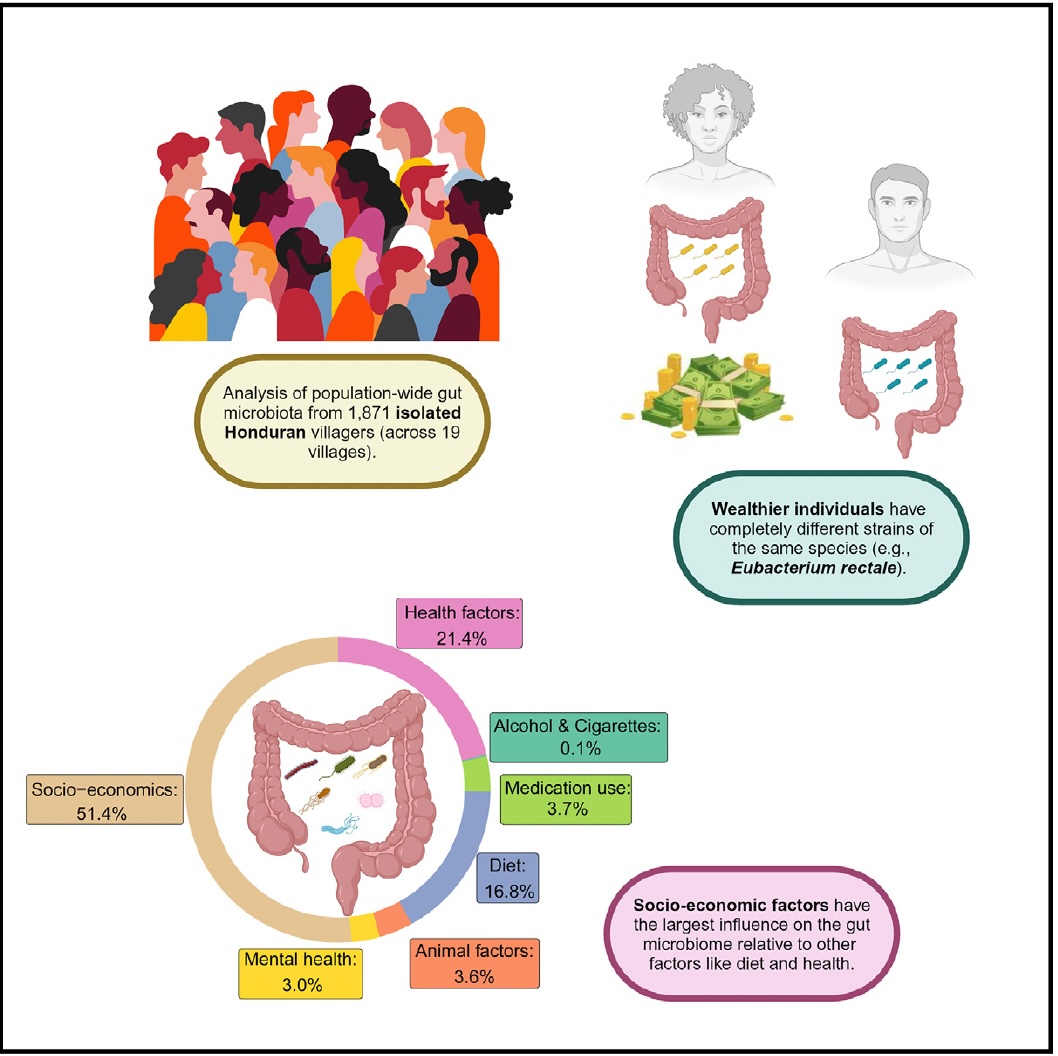
Environmental, socioeconomic, and health factors associated with gut microbiome species and strains in isolated Honduras villages
Abstract
Despite a growing interest in the gut microbiome of non-industrialized countries, data linking deeply sequenced microbiomes from such settings to diverse host phenotypes and situational factors remain uncommon. Using metagenomic data from a community-based cohort of 1,871 people from 19 isolated villages in the Mesoamerican highlands of western Honduras, we report associations between bacterial species and human phenotypes and factors. Among them, socioeconomic factors account for 51.44% of the total associations. Meta-analysis of species-level profiles across several datasets identified several species associated with body mass index, consistent with previous findings. Furthermore, the inclusion of strain-phylogenetic information modifies the overall relationship between the gut microbiome and the phenotypes, especially for some factors like household wealth (e.g., wealthier individuals harbor different strains of Eubacterium rectale). Our analysis suggests a role that gut microbiome surveillance can play in understanding broad features of individual and public health.
Citation:
Shridhar SV, Beghini F, Alexander M, Singh A, Juárez RM, Brito IL, Christakis NA. Environmental, socioeconomic, and health factors associated with gut microbiome species and strains in isolated Honduras villages. Cell Reports. 2024 Jul 3;43(7):114442. doi: 10.1016/j.celrep.2024.114442. Epub ahead of print. PMID: 38968070.